2013 in Review: The State of the Japanese Games Industry
We kick off our look back at the year that was with a discussion of how the Japanese side of the games industry has fared in 2013.
This article first appeared on USgamer, a partner publication of VG247. Some content, such as this article, has been migrated to VG247 for posterity after USgamer's closure - but it has not been edited or further vetted by the VG247 team.
"Japan is over." This has been perhaps the single most common sentiment among American gamers, publishers, and analysts (not to mention certain Japanese developers) over the past few years -- especially if you factor in its corollary, "Nintendo should go third party."
And it's true that compared to the glory days of the original PlayStation, when Japanese games crowded the shelves and inspired untold millions to part ways eagerly with their precious cash, the era heralded by PlayStation 4 sees Japanese-developed software of note almost completely in absence. But is Japan really over, or is there something more at work here? USgamer's Jeremy Parish and Pete Davison hash it out.
Jeremy Parish: I've always sort of felt that when people simply wave away the Japanese side of game development as irrelevant, they're painting themselves as quite short-sighted. If anything, the Japanese games industry is frequently a bellwether for the rest of the world. When Japan's developers and publishers struggle, everyone else should take notes; the weirdly insular nature of Japan and its very specific social ails -- a faltering economy, an aging population -- make the hardships its games industry undergoes a sort of preview of things to come for American and European companies a few years down the line. It was true of the shift to mobile gaming, which began in Japan long before the iPhone existed; it has proven true of the cannibalizing effect of high-cost game development; and now I suspect we'll see it prove true in a different way.
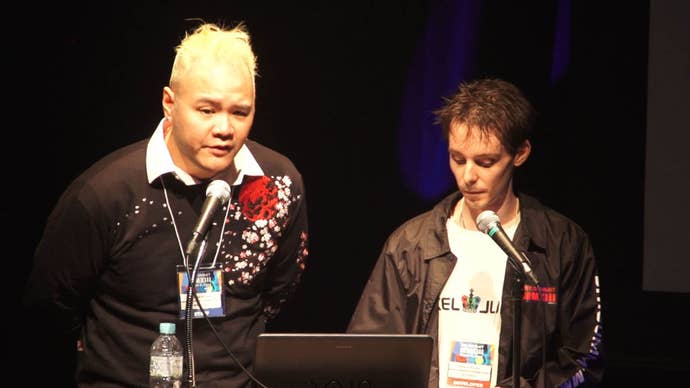
Hopefully, this time around will be a more positive demonstration, though. See, 2013 was the year that Japan discovered independent gaming and crowdfunding, and my hunch is that it's going to revolutionize Japanese game development. Tokyo Game Show featured an indie games pavilion for the first time ever -- an entire ghetto of small games from around the world rather than a handful of weird student projects sprinkled within the Asian games pavilion and the separate Night of Wonder event. And half a year before that, my former colleague James Mielke launched an entire event specifically for independent Japanese game developers called BitSummit, which will apparently be massively larger in 2014 -- not to mention government-backed this time around. Japanese indie games are on the rise.
Of course, you can scoff that western indies have already arrived, and that's a fair enough argument. In some senses, Japan is super late to the party. But then again, it was kind of Japan's party to begin with; think back to the early landmark indie titles of the past decade and the first ones there were things like Cave Story, Noiz2sa, and La-Mulana. Now that loose community is finally beginning to coalesce into a true movement, with Comcept's Mighty No. 9 breaking down one of the last barriers standing in the way: The mysterious final frontier known as "crowdsourcing." Japanese indies may be forced to play catch-up for a while, but given the dire state of the country's big-budget development, I think self-publishing will have an even more profound impact over there than it has here.
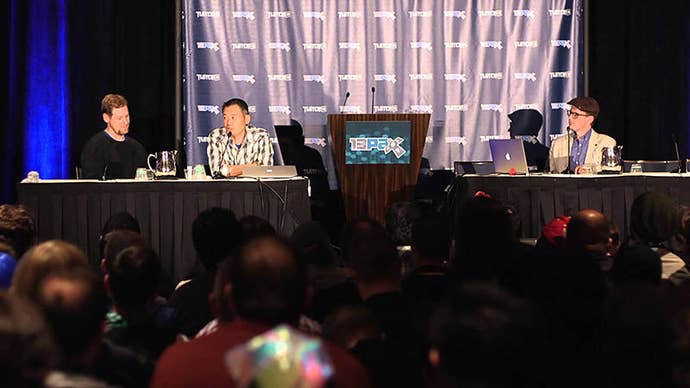
Pete Davison: The barriers are starting to come down between East and West, and oddly enough, Western indie developers, localizers and publishers can take some credit for that.
Take Carpe Fulgur, for example. That company's release of Recettear made me aware not only that there was a Japanese indie gaming scene -- something I'd never even considered before -- but that it was capable of putting out some intriguing, creative and high-quality games. Since I first played Recettear, I've kept a much closer eye on other titles to come out of Japan on PC -- not to mention watch the growth of Carpe Fulgur with a smile on my face. (Dice and his team are currently working on the translation of the excellent Trails in the Sky Second Chapter, for those who were unaware.)
And Carpe Fulgur is far from the only company putting out localized versions of Japanese doujin titles, too. We've also seen the rise of companies like Nyu Media, who specialize in localizing Japanese action games and shmups -- game types that have historically been associated with consoles in the West -- and smaller outfits like Fruitbat Factory bringing niche-interest RPGs and strategy games to English-speaking territories, not to mention the continued work of outfits like MangaGamer and JAST USA satisfying the appetites of visual novel fans.
I think the industry as a whole sometimes has a flair for being overdramatic and mistaking significant change for a slide into irrelevance or even death. The Japanese industry has its own challenges to overcome, but the fact I always have something to write about for JPgamer each week -- not to mention a backlog of PS3-era JRPGs that stands almost as tall as I do -- suggests to me that things perhaps aren't as bleak as some people might like to make out.
If nothing else, it's certainly going to be very interesting to see how things develop as Japan's developer community adapts to the challenges of the new generation.
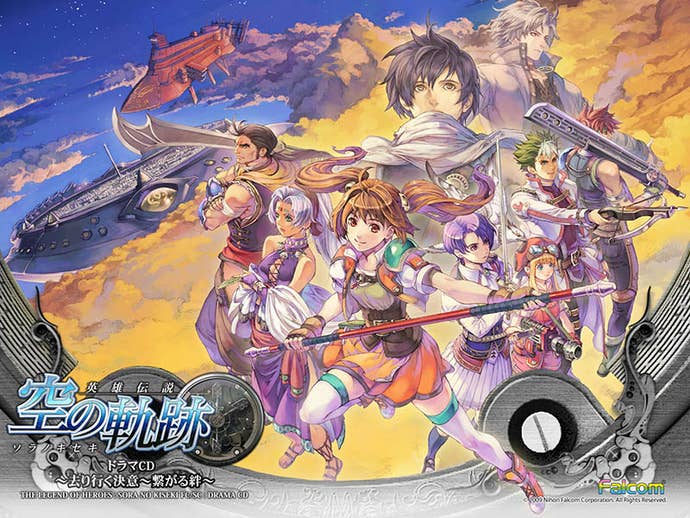
Jeremy: Unfortunately, I wish things looked quite as rosy for the giants of the Japanese games industry. That's not really the case; they're in pretty bad shape. But this year I don't know that I'd necessarily lay the blame at the feet of the developers and publishers themselves. The sad reality is that the Japanese audience itself is shrinking. If you're not selling a Monster Hunter, Pokémon, or Dragon Quest game, no one cares -- and even then, the shine is off Dragon Quest after Yuji Horii and company had the audacity to do something different with Dragon Quest X.
Outside of a few major franchises that sell a guaranteed million-plus units (a rare feat over there these days), everyone else is fighting for table scraps. Major Japanese studios fall over themselves to emulate Western games not because they want to but because there aren't enough potential sales in their home market to justify doing otherwise. Niche games, once so lively and varied in Japan (seriously, check out a catalog of obscure import PlayStation games someday), almost invariably cram themselves full of blushing moé girls in various degrees of undress. Again, not because their creators want to, but -- as one anonymous developer told a colleague of mine -- because catering to Japan's "gal games" market can make the difference between profit and failure for a smaller studio.
Certain developers manage to approach this niche with more class than others, but whether tasteful or sleazy the growing emphasis on blushing, scantily clad girls only fuels the general perception in Japan of video games as a niche product for kids and socially stunted shut-ins, which in turn whittles down the size of the market even more. By and large, Japanese games seem to be caught in a vicious circle of catering to a shrinking market with tactics that cause it to shrink even more quickly. So we have wonderfully talented developers forced by necessity to settle for making shallow social games, when they aspire to do so much more. Or worse, bowing out of games altogether.
What makes this all so infuriating is the tendency by Western game fans and creators alike to brush off this trend with glib, often borderline-xenophobic disdain. Ho-ho, Japan's so wacky and backward, no wonder it's failing. As if this malaise is somehow unique to Japan. As I said before, the Japanese games market is often a sort of bellwether for the rest of the world. Ignoring what's happening over there seems like a truly backward mindset.
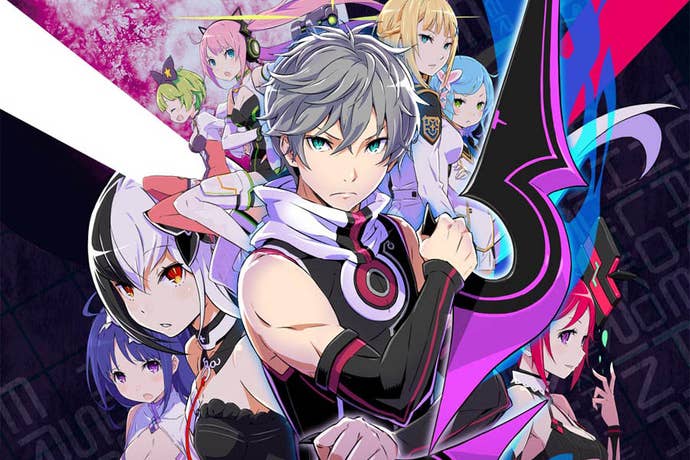
Pete: As a card-carrying member of the moé fan-club, I have less of a problem with galge than some people do, but at the same time I acknowledge it's a particular branch of Japanese gaming as a whole that some people find to be not to their taste for various reasons -- whether it's simply not liking the art style or feeling outright alienated by something that has clearly not been designed for them. The same thing is happening with anime and the popularity of "slice of life" shows compared to classic genres of yore such as giant robots and the like.
I don't think it's necessarily a bad thing for games to not be designed for universal appeal -- the games I've enjoyed most in recent memory have been very obviously designed with niche appeal in mind, and it's always pleasing to play something that feels like it was made to cater to my specific tastes. However, there's a caveat to that: For that approach to work in the long term, there needs to be a little something out there for everyone to enjoy; and by that I mean more niches catering to different types of people, if you like, rather than the scattershot "one size fits all" approach that big Western publishers often try with varying degrees of success to adopt. Catering to specific, marginalized groups is something Western independent developers are just starting to experiment a little with; I wonder if Japanese doujin circles will be the same?
You're absolutely right about the disdain with which Japanese games are treated, though, regardless of how niche or moé they are. The problems Japan is facing are by no means exclusive to them; and for every bafflingly "weird" thing that doesn't translate well to Western audiences, there's something genuinely interesting and creative going on. There's certainly no dearth of quality entertainment coming out of Japan, but its industry needs to figure out why people aren't buying games as much as they used to, and how to reverse that trend -- if indeed that's possible.
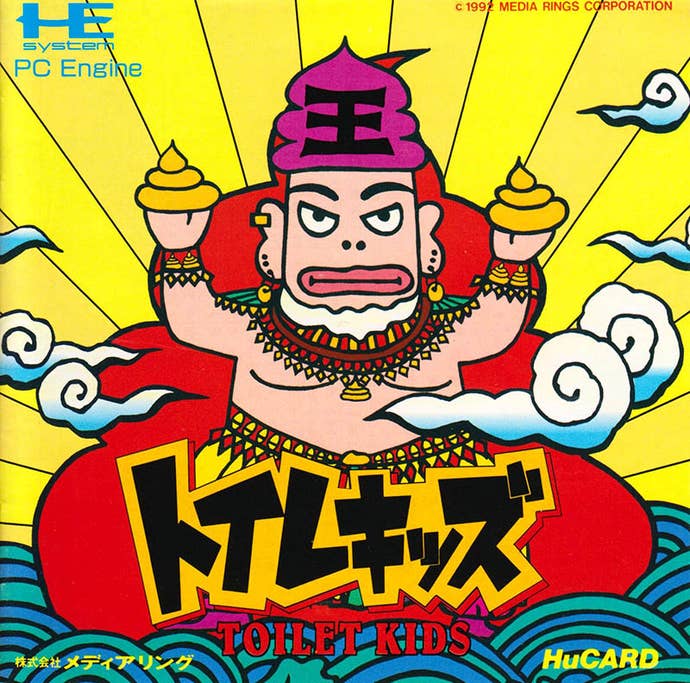
Jeremy: You know, for all the guff Japanese games get for being supposedly all the same, you and I certainly do like very different kinds of games from over there. I'm not a fan at all of the moé thing and the games that go along with it (with the random exception being Etrian Odyssey, where it's totally an optional component) -- in truth there's not a lot of overlap on the imports we do enjoy. I'm not about to bust anyone's chops for their personal preferences, though; like I said, the real issue I see with moé is a sort of perceptual feedback loop, one that extends far beyond games. Honestly, outside of sketchy PC software, this sort of thing is pretty mild in games; the worst offenders tend to be anime and, even more often, promotional material and merchandise. A totally tame game will frequently be promoted with risqué phone cards or downright pornographic figurines and artwork that don't reflect the game's contents at all.
There's a movement in Japan right now to ban excessively salacious cartoon material and displays from Tokyo's Akihabara district in advance of the 2020 Olympics. Ås soon as Tokyo was confirmed as an Olympic host, people began demanding a clean-up of Akihabara and other similar areas to avoid giving the pending influx of foreign visitors the wrong idea about the place. And to be honest, there is some pretty iffy artwork splashed around that neighborhood -- billboard-sized drawings of pre-teen girls flashing their underwear, that sort of thing. Material so overtly questionable is actually pretty uncommon in mainstream games (if only because platform holders like Nintendo and Sony frown on it), but when games do toe that particular line, it feeds the Japanese public's perception that games are for deviants (not to mention the Western stereotype that everyone in Japan is a deviant).
That's the thing, you know? Here in the West, a lot of kids who grew up in the ‘80s playing NES and C64 and Spectrum mutated into adults playing Dead Rising 3 and Assassin's Creed IV. But in Japan, kids who lined up for Dragon Quest III didn't carry that affection forward, aside from a nostalgic fondness for Famicom branding. Most people outgrew games over there, so developers are forced to cater either to kids or to the hardcore otaku base lest they're forced to subsist on crappy GREE card games. I hear this a lot both from developers and from friends and colleagues who live in Japan.
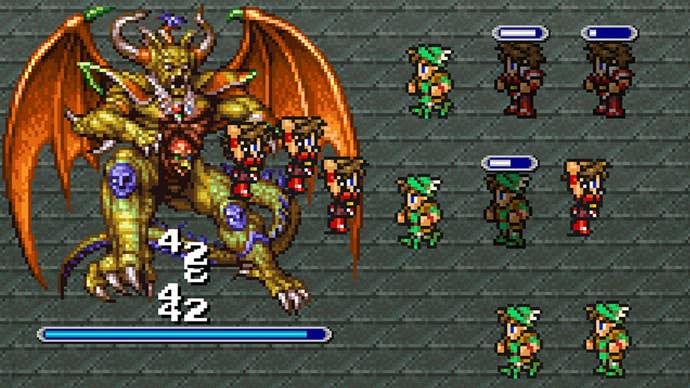
It all feels pretty bleak sometimes for people like me, who grew up on a steady diet of Japanese games and hasn't written them off yet. I met 999/Virtue's Last Reward director Kotaro Uchikoshi this fall, and he told me that despite having a pretty enthusiastic fan base on both sides of the Pacific Chunsoft doesn't see his innovative puzzle-adventure games as sustainable. He doesn't foresee working on similar games in the immediate future.
And yet, I look at the games I've enjoyed this year, and a lot of them are from Japan. Nintendo continues to kick all kinds of ass -- creatively if not financially -- and I loved Animal Crossing, Pikmin 3, Super Mario 3D World, Fire Emblem, and both Zeldas. I also really like their hand-in-hand work with Western studios; Luigi's Mansion, co-developed with Next Level Games, is every bit as great a collaborative project as Metroid Prime. Atlus has been firing on all cylinders with MegaTen, Dragon's Crown, and Etrian Odyssey. I've heard great things about Rune Factory IV, and the new Ys was loads of fun. And we had Umihara Kawase, Attack of the Friday Monsters!... hmm. Almost all of these are portable games, huh?
Pete: I think we can probably sum all this up by saying that if you want to continue to enjoy Japanese games, portable and PC seem to be the places to be. The PS3 has had a decent enough run of JRPGs -- though mostly of the moe variety, with a few exceptions -- but yeah; 3DS, PSP, Vita and PC are the platforms to keep an eye on in the coming years, I think.
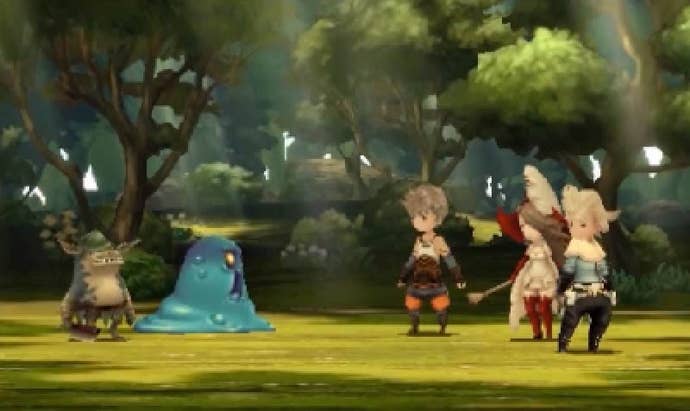
While Japanese gaming is clearly undergoing some significant changes and is unlikely to be the same as we've known it in the past, I think it's also clear that it's certainly got some fight left in it yet; seeing how it adapts in order to survive is going to be very interesting, I think. I'll certainly continue supporting it by throwing my money at the experiences I'd like to continue having; I'd urge anyone who feels the same way to do likewise.
Jeremy: Yep. And I definitely think Bitsummit II is worth keeping an eye on -- if anything can offer a leading indicator of the future of Japanese development, that'll be it.

